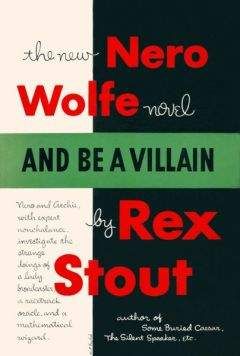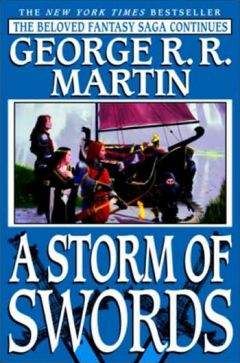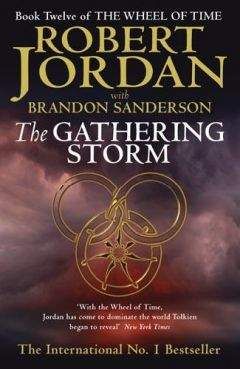“Nonsense.” Wolfe never gets riled with Saul. “You can give me the details later, if there are any I should have. Will you reach New York in time to come to the office at six o'clock?”
“Yes.”
“Good. Do that.”
Wolfe resumed with Traub. As I have already mentioned, the climax of that two hours' hard work was when Traub confessed that he frequently bet on horse races.
As soon as he had gone Wolfe and I went to the dining-room for the lunch previously described, corn fritters with autumn honey, sausages, and a bowl of salad. Of course what added to his misery was the fact that Savarese was expected at two o'clock, because he likes to have the duration of a meal determined solely by the inclination of him and the meal, not by some extraneous phenomenon like the sound of a doorbell.
But the bell rang right on the dot.
You have heard of the exception that proves the rule. Professor F. O. Savarese was it.
The accepted rule is that an Italian is dark and, if not actually a runt, at least not tall; that a professor is dry and pedantic, with eye trouble; and that a mathematician really lives in the strato- sphere and is here just visiting relatives. Well, Savarese was an Italian-American professor of mathematics, but he was big and blond and buoyant, two inches taller than me, and he came breezing in like a March morning wind.
He spent the first twenty minutes telling Wolfe and me how fascinating and practical it would be to work out a set of mathematical formulas that could be used in the detective business. His favourite branch of mathematics, he said, was the one that dealt with the objective numerical measurement of probability.
Very well. What was any detective work, any kind at all, but, the objective measurement of probability? All he proposed to do was to add the word numerical, not as a substitute or replacement, but as an ally and reinforcement.
“I'll show you what I mean,” he offered. “May I have a paper and pencil?”
He had bounded over to me before I could even uncross my legs, took the pad and pencil I handed him, and bounded back to the red leather chair. When the pencil had jitterbugged on the pad for half a minute he tore off the top sheet and slid it across the desk to Wolfe, then went to work on the next sheet and in a moment tore that off and leaped to me with it.
“You should each have one,” he said, “so you can follow me.”
I wouldn't try to pretend I could put it down from memory, but I still have both those sheets, in the folder marked ORCHARD, and this is what is on them:
I м ж X XІ ц ь u = - н I - Ѕ k з - - ј - ч э e - Ѕ XІ¤DІ V2pD о и D DІ ш ю “That,” Savarese said, his whole face smiling with eager interest and friendliness and desire to help, “is the second approximation of the normal law of error, sometimes called the generalized law of error. Let's apply it to the simplest kind of detective problem, say the question which one of three servants in a house stole a diamond ring from a locked drawer. I should explain that X is the deviation from the mean, D is the standard deviation, kis-”
“Please!” Wolfe had to make it next door to a bellow, and did. “What are you trying to do, change the subject?”
“No.” Savarese looked surprised and a little hurt. “Am I? What was the subject?”
“The death of Mr Cyril Orchard and your connection with it.”
“Oh. Of course.” He smiled apologetically and spread his hands, palms up.
“Perhaps later? It is one of my favourite ideas, the application of the mathematical laws of probability and error to detective problems, and a chance to discuss it with you is a golden opportunity.”
“Another time. Meanwhile'-Wolfe tapped the generalized law of error with a finger tip-”I'll keep this. Which one of the people at that broadcast placed that glass and bottle in front of Mr Orchard?”
“I don't know. I'm going to find it very interesting to compare your handling of me with the way the police did it. What you're trying to do, of course, is to proceed from probability toward certainty, as close as you can get. Say you start, as you see it› with one chance in five that I poisoned Orchard. Assuming that you have no subjective bias, your purpose is to move as rapidly as possible from that position, and you don't care which direction. Anything I say or do will move you one way or the other. If one way, the one-in-five will become one-in-four, one-in-three, and so on until it becomes one-in-one and a minute fraction, which will be close enough to affirmative certainty so that you will say you know that I killed Orchard. If it goes the other way, your one-in-five will become one-in-ten, one-in-one-hundred, one-in-one-thousand; and when it gets to one-in-ten-billion you will be close enough to negative certainty so that you will say you know that I did not kill Orchard. There is a formula-”
“No doubt.” Wolfe was controlling himself very well. “If you want to compare me with the police you'll have to let me get a word in now and then. Had you ever seen Mr Orchard before the day of the broadcast?”
“Oh, yes, six times. The first time was thirteen months earlier, in February 1947. You're going to find me remarkably exact, since the police have had me over all this, back and forth. I might as well give you everything I can that will move you toward affirmative certainty, since subjectively you would prefer that direction. Shall I do that?”
“By all means.”
I thought that would appeal to you. As a mathematician I have always been interested in the application of the calculation of probabilities to the various forms of gambling. The genesis of normal distributions-”
“Not now,”Wolfe said sharply.
“Oh-of course not. There are reasons why it is exceptionally difficult to calculate probabilities in the case of horse races, and yet people bet hundreds of millions of dollars on them. A little over a year ago, studying the possibilities of some formulas, I decided to look at some tip sheets, and subscribed to three. One of them was the Track Almanac, published by Cyril Orchard. Asked by the police why I chose that one, I could only say that I didn't know. I forget. That is suspicious, for them and you; for me, it is simply a fact that I don't remember. One day in February last year a daily double featured by Orchard came through, and I went to see him. He had some intelligence, and if he had been interested in the mathematical problems involved I could have made good use of him, but he wasn't. In spite of that I saw him occasionally, and he once spent a weekend with me at the home of a friend in New Jersey. Altogether, previous to that broadcast, I had seen him, been with him, six times. That's suspicious, isn't it?”
“Moderately,” Wolfe conceded.
Savarese nodded. “I’m glad to see you keep as objective as possible. But what about this? When I learned that a popular radio programme on a national network had asked for opinions on the advisability of having a horse race tipster as a guest, I wrote a letter strongly urging it, asked for the privilege of being myself the second guest on the programme, and suggested that Cyril Orchard should be the tipster invited.” Savarese smiled all over, beaming. “What about your one-in-five now?”
Wolfe grunted. “I didn't take that position. You assumed it for me. I suppose the police have that letter you wrote?”
“No, they haven't. No one has it. It seems that Miss Fraser's staff doesn't keep correspondence more than two or three weeks, and my letter has presumably been destroyed. If I had known that in time I might have been less candid in describing the letter's contents to the police, but on the other hand I might not have been. Obviously my treatment of that problem had an effect on my calculations of the probability of my being arrested for murder. But for a free decision I would have had to know, first, that the letter had been destroyed, and, second, that the memories of Miss Fraser's staff were vague about its contents. I learned both of those facts too late.”
Wolfe stirred in his chair. “What else on the road to affirmative certainty?”
“Let's see.” Savarese considered. “I think that's all, unless we go into observation of distributions, and that should be left for a secondary formula.
For instance, my character, a study of which, a posteriori, would show it to be probable that I would commit murder for the sake of a sound but revolutionary formula. One detail of that would be my personal finances. My salary as an assistant professor is barely enough to live on endurably, but I paid ten dollars a week for that Track Almanac.”
“Do you gamble? Do you bet on horse races?”
“No. I never have. I know too much-or rather, I know too little. More than ninety-nine per cent of the bets placed on horse races are outbursts of emotion, not exercises of reason. I restrict my emotions to the activities for which they are qualified.” Savarese waved a hand. “That starts us in the other direction, toward a negative certainty, with its conclusion that I did not kill Orchard, and we might as well go on with it. Items: “I could not have managed that Orchard got the poison. I was seated diagonally across from him, and I did not help pass the bottles. It cannot be shown that I have ever purchased, stolen, borrowed, or possessed any cyanide. It cannot be established that I would, did, or shall profit in any way from Orchard's death.
When I arrived at the broadcasting studio, at twenty minutes to eleven, everyone else was already there and I would certainly have been observed if I had gone to the refrigerator and opened its door. There is no evidence that my association with Orchard was other than as I have described it, with no element of animus or of any subjective attitude.”
Savarese beamed. “How far have we gone? One-in-one-thousand?”
“I’m not with you,” Wolfe said with no element of animus. “I’m not on that road at all, nor on any road. I'm wandering around poking at things. Have you ever been in Michigan?”
For the hour that was left before orchid time Wolfe fired questions at him, and Savarese answered him briefly and to the Point. Evidently the professor really did want to compare Wolfe's technique with that of the police, for, as he gave close attention to each question as it was asked, he had more the air of a judge or referee sizing something up than of a murder suspect, guilty or innocent, going through an ordeal. The objective attitude.
He maintained it right up to four o'clock, when the session ended, and I escorted the objective attitude to the front door, and Wolfe went to his elevator.
A little after five Saul Panzer arrived. Coming only up to the middle of my ear, and of slight build, Saul doesn't even begin to fill the red leather chair, but he likes to sit in it, and did so. He is pretty objective too, and I have rarely seen him either elated or upset about anything that had happened to him, or that he had caused to happen to someone else, but that day he was really riled.
“It was bad judgement,” he told me, frowning and glum. “Rotten judgement. I'm ashamed to face Mr Wolfe. I had a good story ready, one that I fully expected to work, and all I needed was ten minutes with the mother to put it over. But I misjudged her. I had discussed her with a couple of the bellhops, and had talked with her on the phone, and had a good chance to size her up in the hotel lobby and when she came outside, and I utterly misjudged her. I can't tell you anything about her brains or character, I didn't get that far, but she certainly knows how to keep the dogs off. I came mighty close to spending the day in the pound.”



